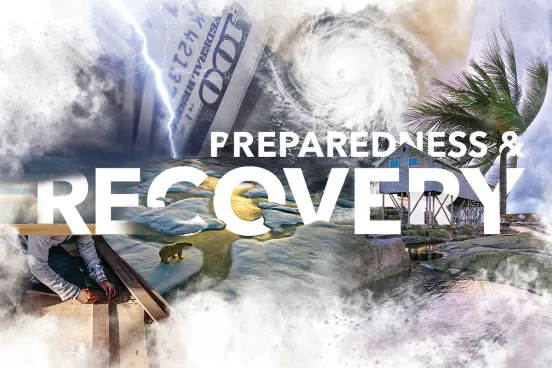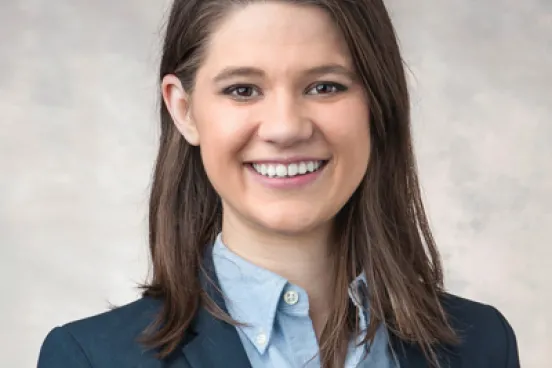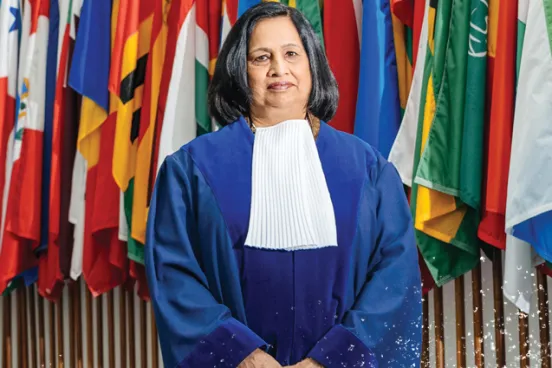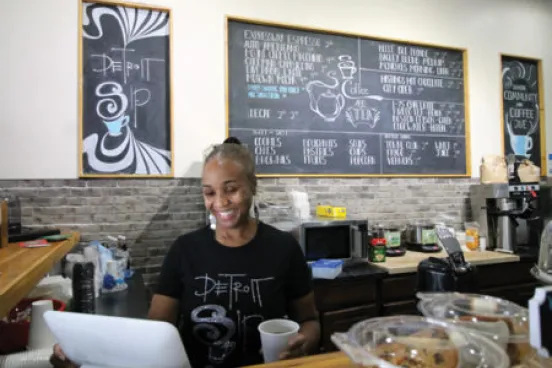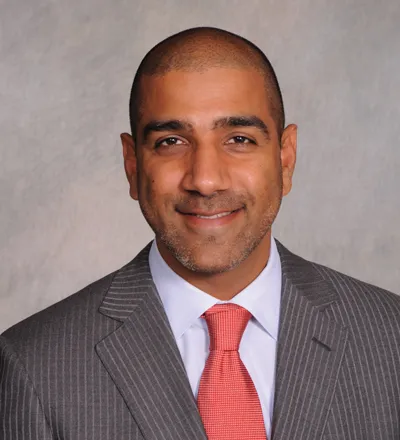
It may not be the simplest place to do business, but there’s plenty of opportunity in the Middle East.
And through a combination of experience, language skills, and his education at Michigan Law, Kamran Bajwa, ’99, is in the sweet spot for helping make sure that opportunity turns into success.
Bajwa, a partner at Kirkland & Ellis in Chicago overseeing the firm’s activities in the Middle East, began developing those qualifications after earning his BA in sociology at U-M in 1994. Degree in hand, he followed his interest in Islamic law to Cairo, where he studied that subject and the Arabic language for two years at Al-Azhar Seminary.
“It’s the most ancient seminary in the Islamic world,” he says. “And through that, I decided to study law in the United States.” So Bajwa returned to Ann Arbor to pursue his JD at Michigan Law.
“I just sort of dove into my intellectual and philosophical interest in law,” he says. “Then the practical training of it, and exposure to the job market, piqued my curiosity to become a mergers and acquisitions lawyer.”
That led him to Kirkland & Ellis. He worked there as an associate for several years, and his skills as an Arabic-speaking American M&A specialist helped him rise to prominence in the Middle Eastern market. Eventually, he left Kirkland to pursue his opportunities in the region, living at various times in Dubai, Cairo, and Bahrain.
“Why have I been able to be successful there? Largely because of my U-M legal training,” Bajwa says. “Yes, I have language and technical skills that help. But the Middle East is trying to develop a U.S. capitalist model, so you can do a lot of good by bringing the M&A know-how you acquired in the United States into the region.”
Bajwa, who in addition to English and Arabic is fluent in Punjabi, finds that especially true as the Middle East works to diversify away from its dependence on oil exports into such areas as renewable energy, automotive manufacturing, and tech. He says if the region is successful—and avoids the kinds of geopolitical pitfalls that have tripped up some countries—the result will be substantial growth.
“If there is peace, they’ll continue to do well,” Bajwa says. “If not, that always throws a big unknown into development. American companies doing business there usually go in for premium, high-value opportunities that have strong government support. These projects are entered into with a lot of risk mitigation built in upfront, so they do a pretty good job of continuing to grow business despite regional conflict.”
By the end of his eight years overseas, Bajwa had become general counsel of EFG Hermes, the largest investment bank in the Middle East/North Africa region, where he established its first in-house legal department and worked on increasingly complex international transactions. But even while working in M&A, where Islamic law generally isn’t applicable, Bajwa maintained a presence in that field with think tanks and political leaders in the region.
Those connections have served him well since he returned to Kirkland & Ellis as a partner, where he has built on his dual interests to remain involved in policy questions. While Islamic law still is only a small part of Bajwa’s practice, he also is a lecturer on the topic at the University of Chicago Law School and a board member of the university’s Chicago Project on Security and Threats (CPOST).
“It’s the issue of the day for American interests in that region,” Bajwa says. “My insights are more relevant from the Islamic law perspective, such as analyzing the theological arguments of ISIS—a passion of mine.”
For Bajwa, that means stepping back from what he calls the “headline approach,” which is all too common in public discourse.
“It’s about demystifying the whole topic, away from the media and public opinion perceptions, to get to the reality on the ground,” he says. “How do we understand what’s actually behind what’s happening?”


